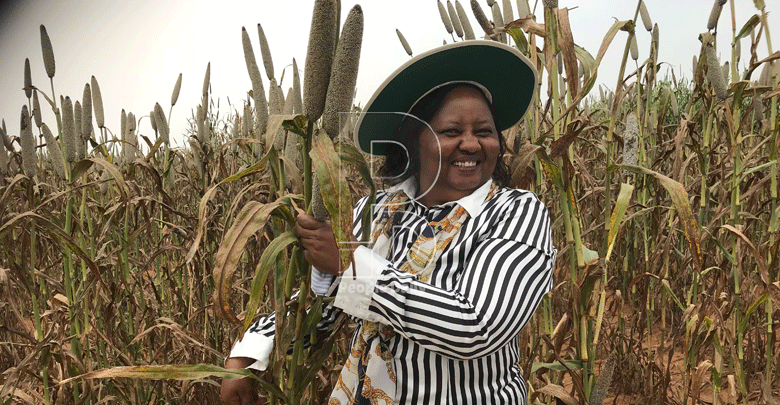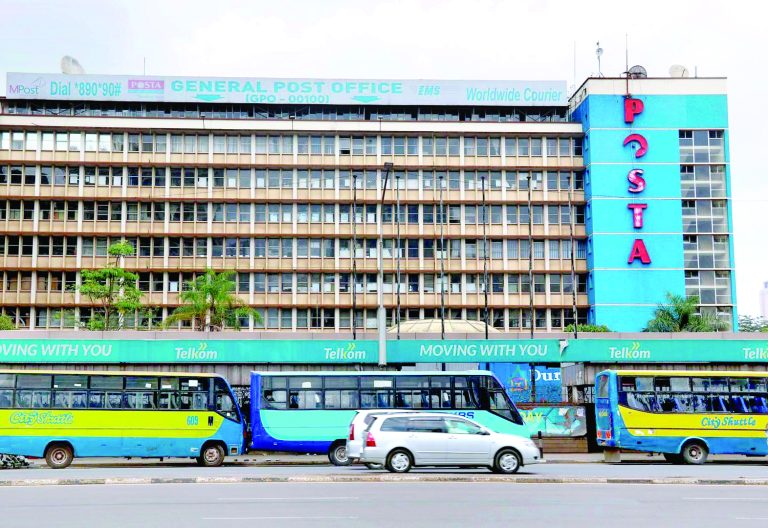Scientist on mission to improve seed quality

Dr Jane Ininda, head of seed research and systems development at Alliance for a Green Revolution in Africa, talks to PeoplePlus about her role as a woman leader in science and the impact of their work in Africa’s agriculture.
Tell us about your leadership at Alliance for a Green Revolution in Africa (AGRA) and what you are responsible for?
In AGRA, I oversee and provide technical direction to teams in 11 African countries in seed research and systems.
This is a team of 22-25 programme officers in our countries who look up to me for expert advice and technical direction to ensure farmers have access to high quality seed.
This inspires me and is of great importance since AGRA is a farmer-centred organisation, and 70 per cent of farmers in Africa are women.
It gives me a good standing since I too understand, from my childhood, the toil of African farmers and of mothers because I saw this with my own parents.
Our ultimate objective is to facilitate the right decisions around crop research interventions, quality seed production, and seed regulations, by governments, private sector, farmers, stakeholders and development partners.
I am one of several women leaders at AGRA at the cutting edge of a massive effort to transform smallholder agriculture in Africa.
Why is the seed sector important and what successes have you achieved over the years?
I got interested in agriculture and then seed when I was growing up in a rural village in Mbeere South sub-county of Embu county, a relatively marginal environment at the border of Embu and Machakos.
My parents were peasant farmers and often we would have sufficient food for only five months in a year.
My parents toiled to plant, but harvested little. I had a question — how can we get enough food?
Later, my passion led me to study agriculture at the University of Nairobi. Through my training, I came to understand the importance of seed.
As a young researcher, my passion for seed earned me a scholarship to study plant breeding at Iowa State University, USA, where I had first-hand experience in unlocking the potential for high farmer productivity.
Back in Kenya I bred and released 33 maize hybrids, commercialised by small seed companies and reach of one million farmers.
I led a team of 60 plant breeders (40 per cent women) who developed 680 additional crop varieties, commercialised by 114 seed companies and reached 3.4 million farmers.
Seed is the most important input in increasing farmer productivity. High quality seed contributes 40 per cent of total productivity.
Despite other inputs, seed sets the upper limit to productivity. However this has not been given the attention it requires, as systems in African countries are dysfunctional and broken along the value chain.
My passion is to drive scale and help farmers access high quality seed, increase productivity and have food for more months in a year.
Our work as a team in AGRA has increased food security to now seven to nine months in a year in our geographies.
You are passionate about the role of quality seeds in transforming agriculture. What are you doing around this matter as AGRA?
AGRA is a leader in this space, and has in the past nine years trained 600+ crop scientists, released 680 crop varieties, developed 119 private seed companies, 18,000 agro-dealers and 33,000 village based advisors and benefited more than 33 million farmers.
This has generated a dynamic force that has resulted in increased yields, greatly reduced hunger and improved incomes for millions of households. AGRA has contributed to policy changes that favour better seed systems in countries.
This has resulted in increased farmer productivity, stable seed companies and trusted seed trade because of increased seed quality.
In Kenya I have mentored and supervised 20 crop scientists (50 per cent women) who have developed new technologies for farmers ranging from dryland crops -cowpeas, pigeon peas, finger millet, cassava, beans and hybrid maize. I am overjoyed because this is really my passion.
What are some recent advances in science around staples and how does this speak to food security?
AGRA scientists are currently exploring how to get high yielding crops and at, the same time, counteract effects of climate change.
AGRA is constantly supporting research to get better seed for high yielding and nutrient rich crops.
Kenya is highly dependent on maize, but this need not be the case are there are multiple options available to curtail malnutrition, obesity, and other diseases.
The mix of legumes and cereals must be given a balanced attention. Under my leadership, we developed early maturing finger millet preferred as a weaning diet and for cancer and HIV patients in Kenya.
Access to high yielding crops and achieving high crop yields ensures food security.
This must be complemented by better resilience for farmers to counteract effects of climate change and enable food security.
In relation to seed, this implies disease resistance, drought tolerance and nutrient-rich crops, thus focusing on enhanced nutrition by increased crop diversity, nutrient rich staples such as high iron beans, b-carotene rich sweet potato, drought tolerance nutrient rich sorghum and millet.
AGRA is working directly in sustainable partnerships that make farmers access new technologies.
AGRA builds SMEs, creates business around seed supply, working with VBAs, seed companies and agro dealers to ensure this last mile access. AGRA was in 2020, recognised as a Centre of Excellence in Seed Systems.
Could you name a woman who’s inspired you the most?
Melinda Gates, because she cares about African’s agriculture. When I was a new graduate in crop science, she dared travel to inspire young women researchers in Africa, I being one of them. She has put her money, time and energy into improving lives of Africa’s women.
She visited my research at KALRO in Muguga in Kenya, soon after I graduated with my PhD, and together we talked to women farmers in Tanzania, and she handed over packets of certified seed to women farmers. This entrenched my conviction that seed is a very critical input.
Melinda Gates sent me a card and I was like wow! I love it; this inspired me more. This was the beginning of my journey in AGRA to support more women farmers not just in Kenya but also across Africa.
What’s a leadership lesson that you’ve learnt that’s unique to being a female leader?
Most African farmers are women. I was one of the pioneer recipients of the African Women in Agricultural Research and Development programme. Fanned by our mentor Vicke Wilde, I learned ‘Every opinion, especially from a woman, matters’ as this could be the next innovation.
I have mentored many women who worked with me in crop science to help farmers. AGRA has trained 600 crop scientists of which 30 per cent is women researchers in different countries who have worked under my leadership. They are making a difference.
Being a woman in this sector, are there any biases or assumptions about you?
I realised that being a woman you need to work twice as hard. First, because of conflicting roles in the family, special opportunities need to be given to women researchers.
Yes, it was said to me that ‘science is not for women’, and “you won’t make it” just because I was an expectant mother with small children and still needed to finish my thesis and research paper. Many women suffer the same and they need encouragement.













